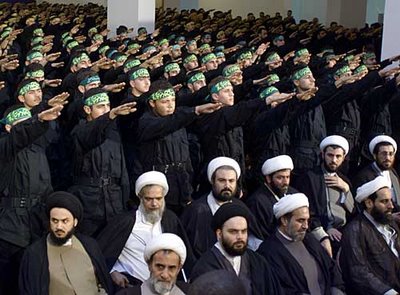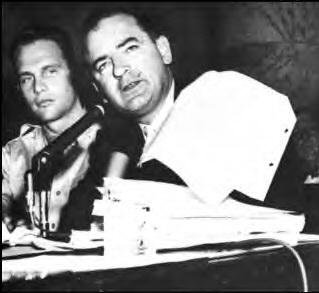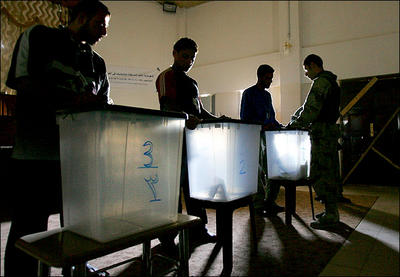
Ummm... should we actually negotiate with these people? Lookat the salute for God's sakes! Why are we even thinking about doing that? Look at them! Just fucking dangerous.
God forbid I demonize the official enemy, in this case Hizb'ullah (the Party of God). God forbid I choose to demonize demons. God forbid I react negatively to what appears to be a Nazi salute.
But, go ahead, hammer out a negotiated settlement with these folks. (I am talking to you, Kofi!) Of course I want this war to stop, do not get me wrong. (I often get myself wrong.) But do not lose your heads. I am trying not to lose mine. A wise man said, Do not cut what you cannot untie. That implies the Lebanese government, at a last option, must cut it off with these so-called Holy Partisans or whatever the else these murderous thugs want to name themselves. If it cannot, sorry Mr. Siniora, but the bullshit has got to end.
Both states must respect the territorial sovereignty of the other; as I have consistently advocated, a cease-fire must be enforced by the relevant multinationals or what-have-you, and by the by such a call to lay down arms has begun as of a few hours ago; reparations by Israel and Lebanon must be paid immediately for their respective collateral damage; and the political structure of Lebanon must be re-made from within, toward the effect of leaving a disarmed Hizbollah and, instead, a political party without recourse to violence, a choice that is entirely up to the Lebanese (at that an acceptable one for Israel, as top Israeli officials have in fact indicated).
No more for now. On a personal note, may this ceasefire have lasting value, indeed a semblance of permanence; may Israel and Lebanon find the peace their people both seek; and may rogues like Hezbollah and their thuggish minions be stamped out once and, hopefully, for all.







